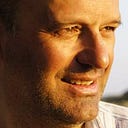Pity the politics: they have multiple hypercomplex problems …
Public administrations today are facing many hypercomplex challenges: more and more historical issues to deal with, with veeeeery limited money. Faced with the increasing need for pragmatic and operational knowledge on how to tackle all of them, a horrible question arises to them:
How to make this transition work, where even the UN failed with their SDG’s ?
We (Club of Brussels - think tank experts on systemic regenerative transition) are working on a Mini MBA (2024, inter-university) to meet the training needs of public services, to serve the widely expected regenerative transition. This program is based on a global scan on best-in-class city- and territorial transition methodologies, and also on 6 years of field experience in systemic problem-solving, as well as smaller territorial experiences. More on the program and faculty later.
Our specific market study showed that a very large majority of the respondents (being territorial authorities) :
- Do not have the skills in their teams to understand and tackle the multiple challenges, present and coming up
- Do not have a credible and pragmatic roadbook or methods to succeed transition
- Do not have the financial resources or budgets to do so
- Do not know how to motivate and engage their citizens and local stakeholders in coherent-concerted action
- Do not have the tools to measure and monitor the progress, in an ergonomic way
- Do not even understand the basic principles of systemic problem solving and regeneration (beyond sustainability)
As we are in 2023, it would be about time to offer some credible answers to those questions, the “traditional” approaches not having performed till this day. 2030 is closeby. Time flies when you have fun. The decade we are in also prepares for us some major convergences in fundamentals, especially in the West, like demographics, political distrust, energy production and costs, buying power, habitat crises, digital insecurity, financial systemic risks, etc.
We would need a whole new paradigm, deployed on historical challenges, lined up in a (serious) methodology, allowing any public service to test, train their teams, and adopt to the local situation, needs and resources. And that, really quickly. Ideally, now.
That “new paradigm” should include: systemic intelligence (to be poerformant), global low-cost best practices (to make it payable), live examples and testimonies (to reassure everybody), common good and progress-based philosophy, citizen engagement techniques (to get everybody collaborating in coherence).
This is exactly what Club of Brussels has prepared for years, in alliance with preferred partners worldwide. Multiple territorial projects have started and offer very encouraging results. It is now time to create academic, scientific, and territorial alliances to scale it up to the next step, in very high level “intercontinental collective intelligence”. The law of multiplication will do the rest of the job. What works will be improved and multiplied (- what doesn’t, will teach us a lot).
The invitation is:
→ Universities and business schools: join us with scholars and students
→ Experts: join us as faculty or as “guest speaker”
→ Territories: join us a player, with your teams (8–12 pp)
The program will basically consist in 2x2 months. The first part will be systemic problem-solving on one screaming local challenge. The second is the adaptation, co-design and starting of the roadbook, on your territory.
Investing your team’s time for the future, and responding to the hypercomplex challenges of your territory, will make you stand out and experience, enabling inspiration for others in your country and around.
For info, contact in PM.
Prof. Michel A. de Kemmeter
founder of www.clubofbrussels.org and www.kairosmultisolutions.org
